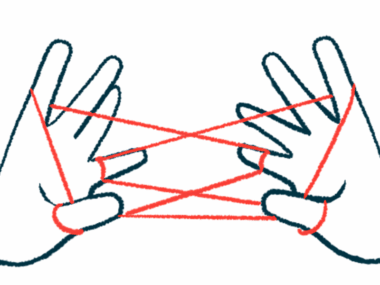Swarm of the Waahdeefs
Written by |

Steam from my hot chocolate fogs my glasses. I almost miss Neo’s opening comment: “How goes the move to St. Louis?”
I wipe my glasses. “We had to speed up the whole thing because of the pandemic. Trying to prepare for every possible concern during these unstable times has turned my brain to mush.” Putting my glasses on, I feel Neo intensely listening. “I got overloaded and then …”
Neo interrupts, “Those are the classic symptoms of being swarmed by waahdeefs.”
“Waah-what?” I ask.
Neo continues, “Oh yeah, they can be real nasty. They sneak into your mind and swirl around, wielding stingers of confusion and …”
My turn to interrupt. I shout, “Neo!”
“Oh yeah, sorry,” Neo stammers. “A waahdeef is that ‘what if’ worry statement. When there is a swarm, it gets really messy — like a cerebral meltdown.” Neo’s grins and says with confidence, “You know, what we need is a large can of waahdeef bug spray.”
Laughing, I say, “I think I’ve got just the thing. Waadeef’s hate certainty. I don’t have worry statements like, ‘What if the sun doesn’t come up tomorrow?’ because, with a fair degree of certainty, I am sure the sun will come up tomorrow. What stimulates waahdeef swarm behavior are not things that are certain, but rather things that are uncertain, like what is going to happen to us in the COVID-19 crisis.”
Parkinson’s patients have the waahdeef swarm effects also. Especially when they get that first diagnosis. The swarm returns with new symptoms or progression: “‘What if I can’t do something I used to be able to do? What if I need more help from family or friends? What is the next thing that is going to happen to me?’”
Neo clears his throat. “So you’re saying is that if we can believe in the certainty of a future outcome, then it no longer becomes the target of a waahdeef swarm? Like using a can of bug spray?” Neo laughs.
“That’s exactly right Neo, and that bug spray is important when the locusts are upon us.” I sound like a general leading troops to battle.
Neo jumps to attention. “OK, general. Tell me how I can get my own can of bug spray “
Here is a list of the ingredients:
- practice the 4S COVID-19 safety program
- focus on what you can do (don’t think about and don’t talk about those things you cannot change)
- show up prepared for what you can do; remain motivated and engaged
- practice wellness behaviors including exercise, threshold management, and meditation
- keep the fear in check, knowing that the world has, and will continue to, create new ways of successfully navigating the COVID-19 crisis
Neo jumps in. “So, the bug spray instructions are to mix all that up and spray in the room while I’m in lockdown? Then, hope for the best?”
“Yeah, that’s about it,” I answer frankly.
Later that day Neo returns and says, “I tried it and it helped a little. But there’s this one pesky, buzzing idea and it’s this: What if that one virus microbe that has survived the disinfectant onslaught manages to land on me? What can I do to stop it? There must be something I can do. “
“That’s a nasty one, Neo. That’s the groundless variety of waahdeef. It’s really difficult because nothing is more uncertain than groundlessness.”
Neo, now showing a higher degree of frustration: “Are you telling me there isn’t anything I can do to get rid of all these nasty waahdeefs? “
“All is not lost, Neo,” I say with assured excitement. “This variety of waahdeefs has a short lifespan. We just need to sit and wait calmly until the cycle is over. “
Neo collapses on the sofa. “Do all I can to keep myself and family safe. Keep the wellness program going. Be patient, relax, and wait until the waahdeefs are dead. Thanks … that helps.”
***
Note: Parkinson’s News Today is strictly a news and information website about the disease. It does not provide medical advice, diagnosis or treatment. This content is not intended to be a substitute for professional medical advice, diagnosis, or treatment. Always seek the advice of your physician or another qualified health provider with any questions you may have regarding a medical condition. Never disregard professional medical advice or delay in seeking it because of something you have read on this website. The opinions expressed in this column are not those of Parkinson’s News Today or its parent company, Bionews Services, and are intended to spark discussion about issues pertaining to Parkinson’s disease.






Leave a comment
Fill in the required fields to post. Your email address will not be published.